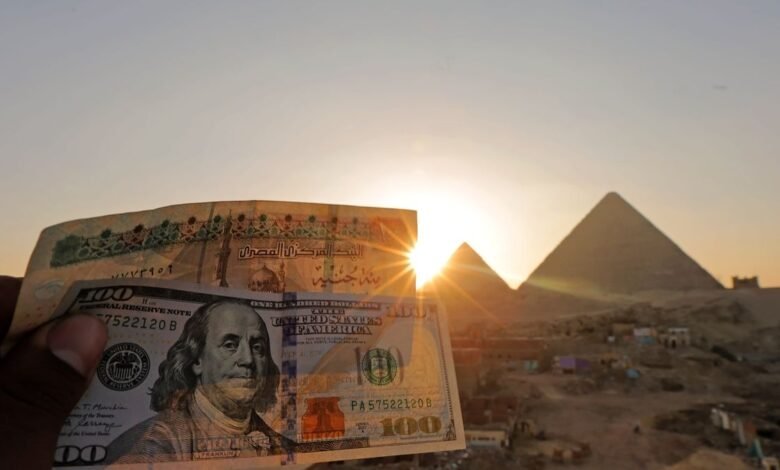Currency Floats, IMF Deal Expands, Interest Rates Soar

In a move that caught markets and analysts by surprise, Egypt undertook significant financial reforms on Wednesday, aimed at revitalizing its struggling economy. Amidst a complex web of challenges, including inflationary pressures and a foreign currency shortage, the Egyptian government and its Central Bank announced a series of bold measures. These included floating its currency, securing an increased bailout loan from the International Monetary Fund (IMF) to US$8 billion, and a sharp rise in interest rates by 600 basis points to a staggering 27.75%.
Strategic Economic Reforms
The decision to allow the Egyptian pound to float freely against the dollar marks a pivotal shift in the country’s economic strategy, aimed at addressing the immediate financial crisis while laying the groundwork for long-term stability. This move resulted in the pound plummeting over 60% in value against the dollar, trading at around 49 pounds to one U.S. dollar, according to latest reports. The Central Bank’s aggressive interest rate hike is a direct response to soaring inflation rates and is intended to curb inflationary pressures by making borrowing more expensive, thereby slowing down money supply growth.
IMF Support and International Backing
The expanded deal with the IMF, increasing Egypt’s bailout loan from an initial US$3 billion to US$8 billion, signifies a critical vote of confidence in Egypt’s economic reform plan from the international community. This financial lifeline is expected to not only help Egypt navigate through its current economic challenges but also attract much-needed foreign investment by signaling a commitment to fiscal discipline and economic openness. Analysts see this as a crucial step for Egypt to regain its economic footing, especially as it faces a severe foreign currency crunch exacerbated by global events such as the pandemic and geopolitical tensions affecting trade routes.
Looking Ahead: Economic Implications and Challenges
While these measures represent a bold stride towards economic recovery, they also usher in a period of uncertainty and adjustment for the Egyptian population. The devaluation of the pound and the spike in interest rates are likely to have immediate impacts on the cost of living, potentially exacerbating the economic hardship for many Egyptians. However, these reforms are also seen as necessary sacrifices for stabilizing the economy and fostering a conducive environment for investment and growth. As Egypt navigates this transitional phase, the success of these reforms will hinge on their implementation and the government’s ability to mitigate the adverse effects on its citizens.





